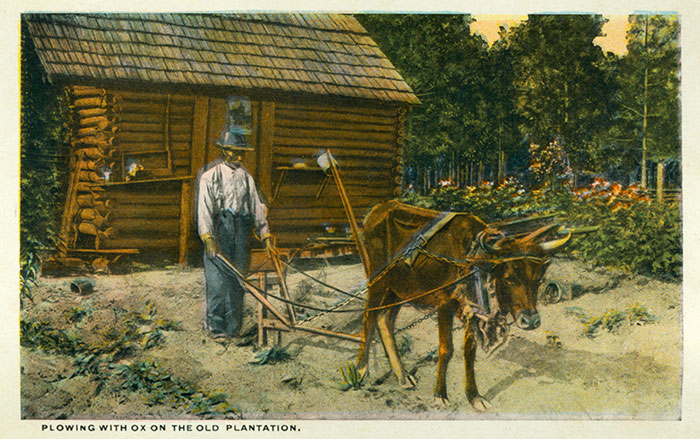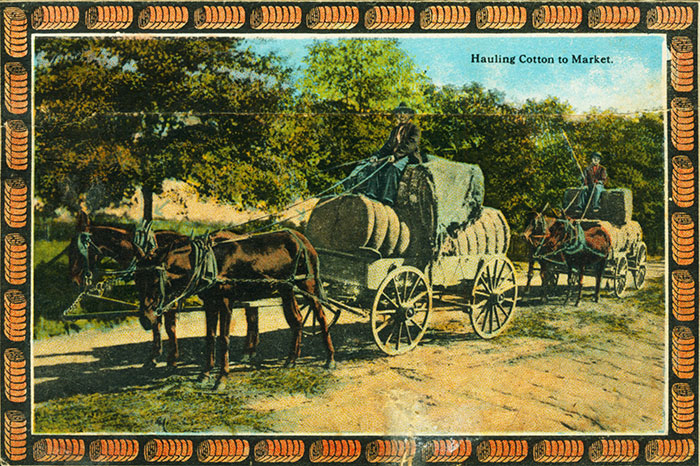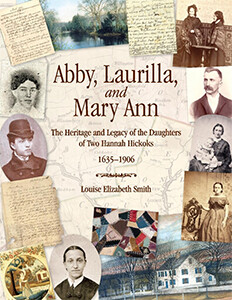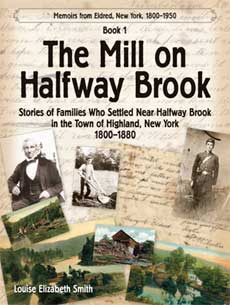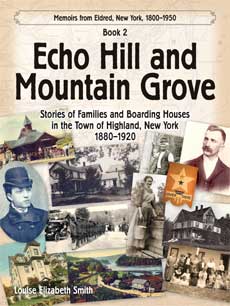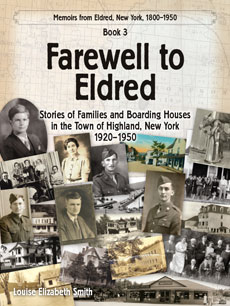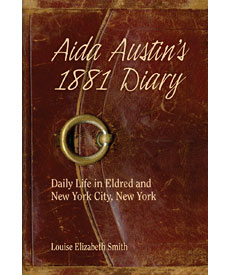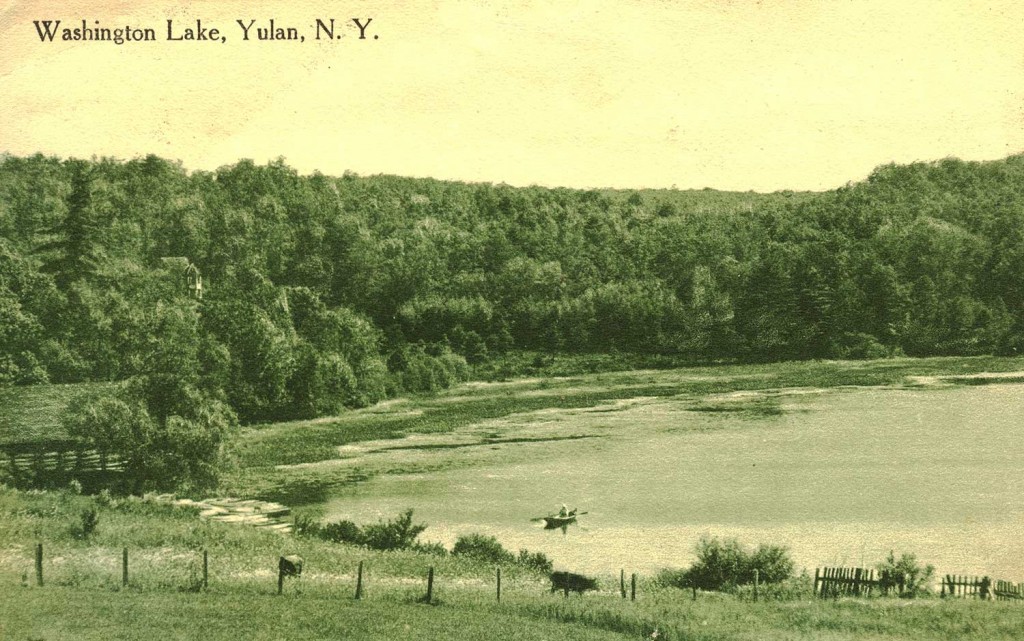
More Envelopes and Stamps
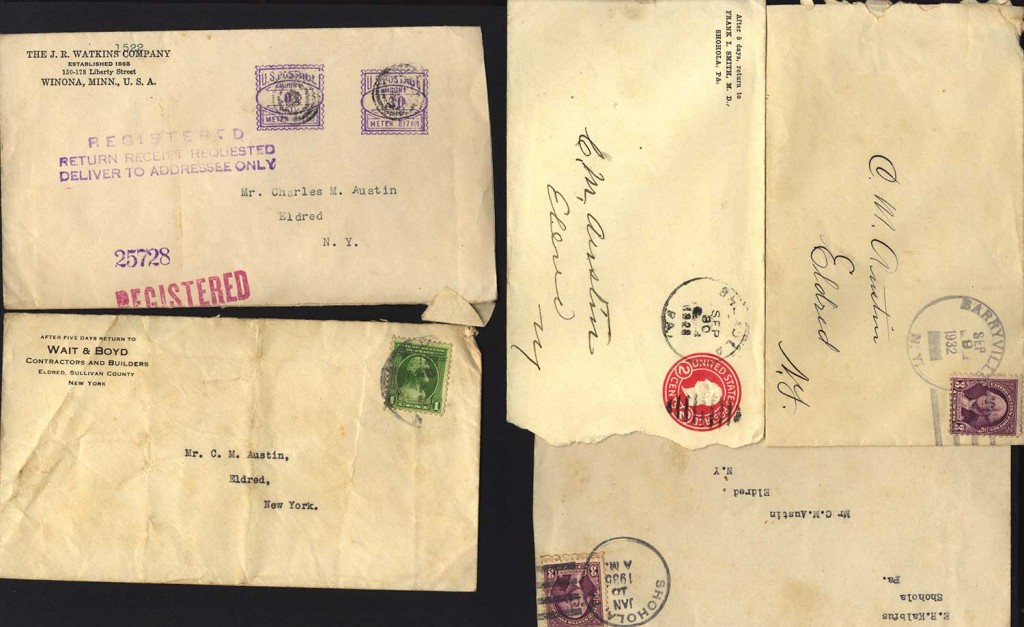
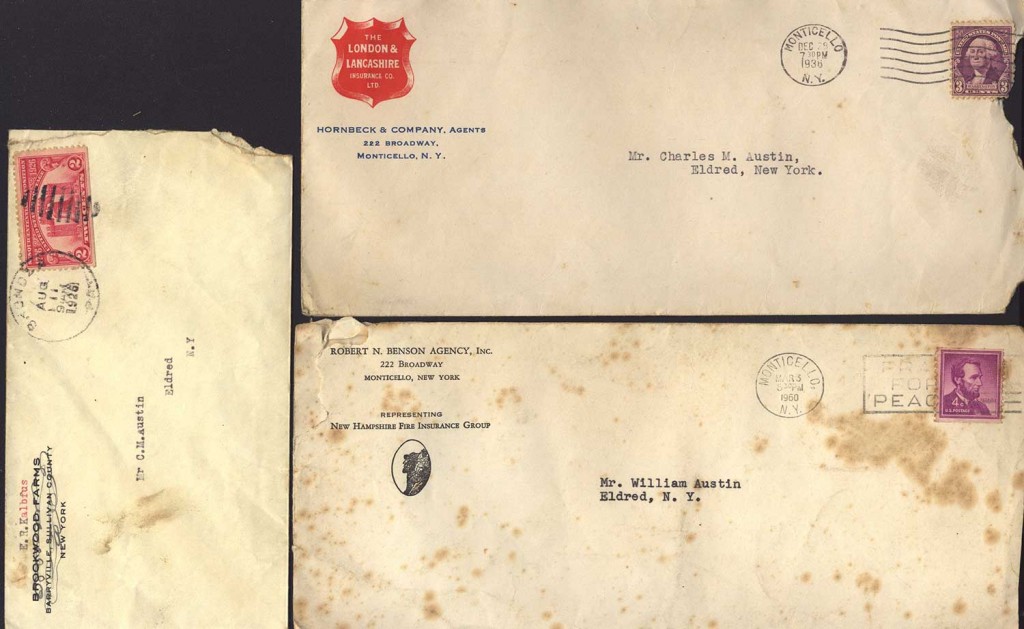
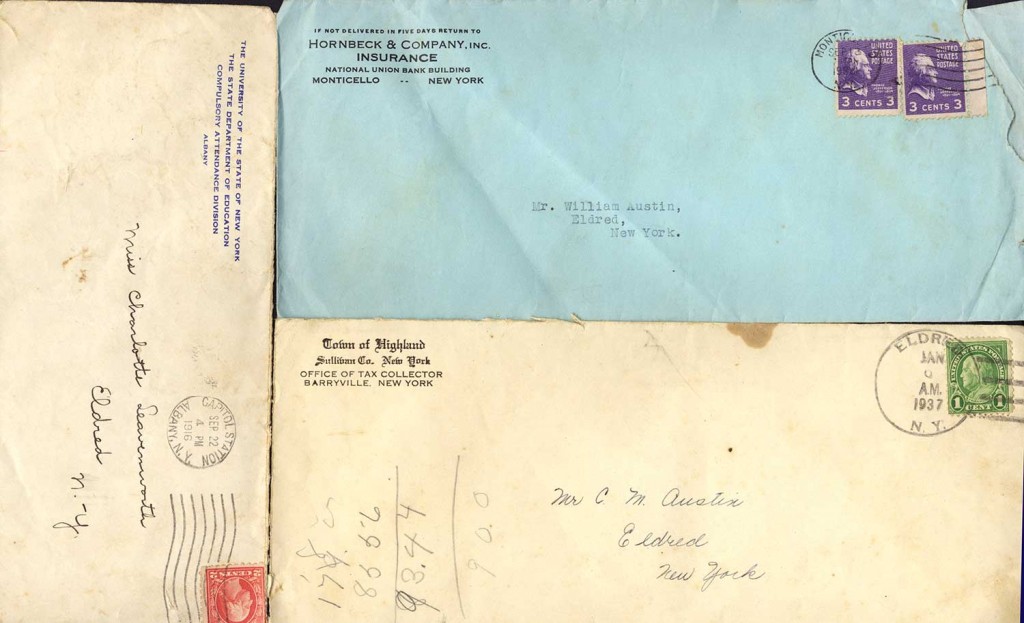
Envelopes from 1878 and 1879
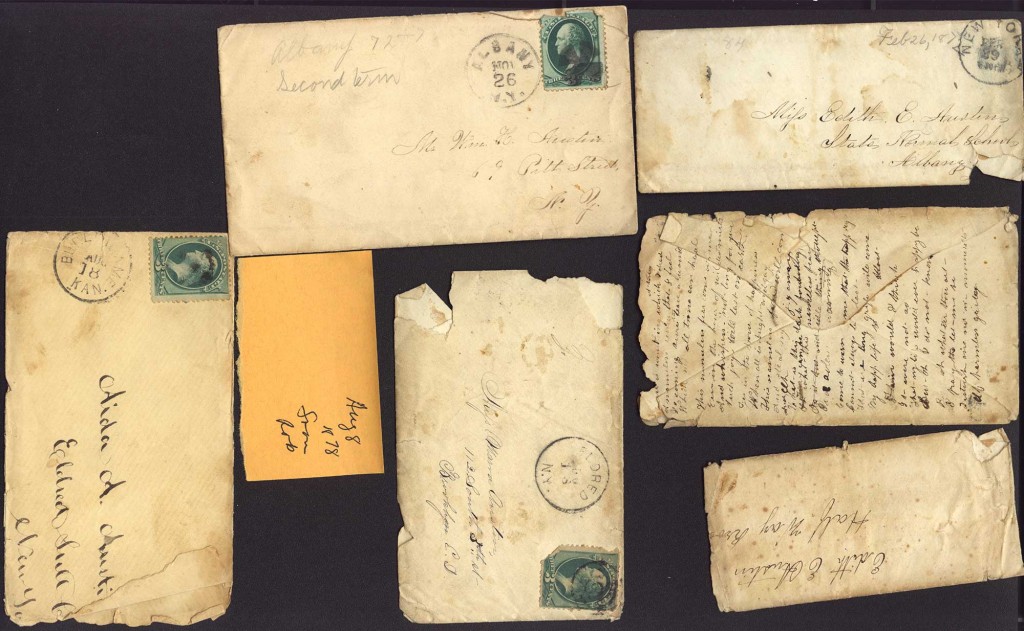
I continue to organize my Halfway Brook files, when I am not doing new research.
This is one of the many images which I scanned in color. I was on such a steep learning curve when I first began compiling information that I often scanned items in black and white and/or too small.
Of course the world was “black and white” in “olden days” so I didn’t really need to scan in color. I now have the option of creating books with color interiors at a more reasonable cost.
Some of my posts have included the images I did scan in color that were black and white in my Halfway Brook books.
Click on the image above twice to see the scan full size.
Henry Austin’s Ledger, 1879
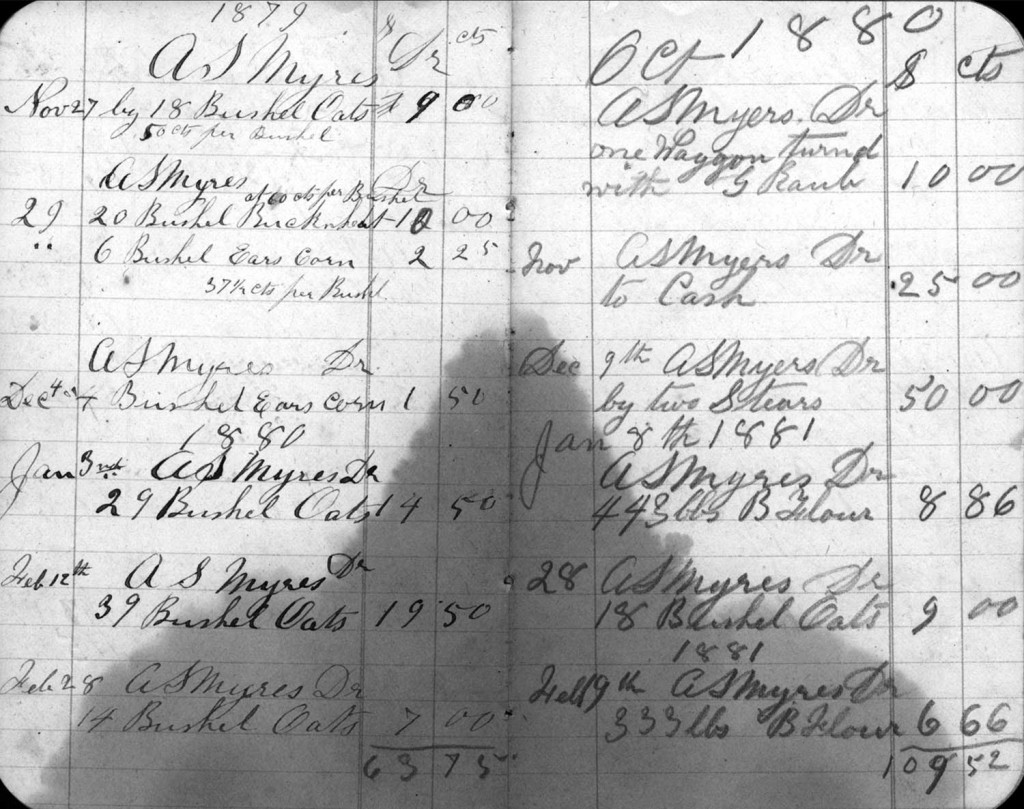
Henry Austin kept a ledger. The page above shows what Henry sold to Abel Sprague Myers in November and December 1879 and mentions of 1880 and 1881. What follows are some earlier entries in Great-Grandfather Henry’s ledger.
1878, A.S. Myers
January: 700 hoops, $4.00
June 25: cash, $10.00
Nov. 6: 20 bushel ears corn at 37.5 cents per bushel=7.50
1879, A.S. Myers
Feb. 18: 6 doz. eggs, 1.25
Mar. 29: 11.55 pd. by check
May 26: 12 pounds of rugs
Oct. 13: 30.00, paid by cash
Oct. 23: two dozen eggs, .37
Oct. 24: 25 bushel ears corn, 9.38
Oct. 29: 30 bushel buckwheat, 15.00
Nov. 27: 18 bushel oats, $9.00 (50 cents/bushel)
Nov. 29: 20 bushel buckwheat,10.00;
6 bushel ears corn, 2.25 (37.5 cents/bushel)
Dec 4: bushel ears corn, 1.50
1917 Sunny South II
1917 The Sunny South I
These postcards are from a Souvenir Folder of the Sunny South. They were sent to Aida Austin from Chattanooga, in October 1917. So I assume the folder was from Mortimer McKinley Austin, Aida’s nephew. The images were sent in 1917, but I don’t know when the original photos were taken.
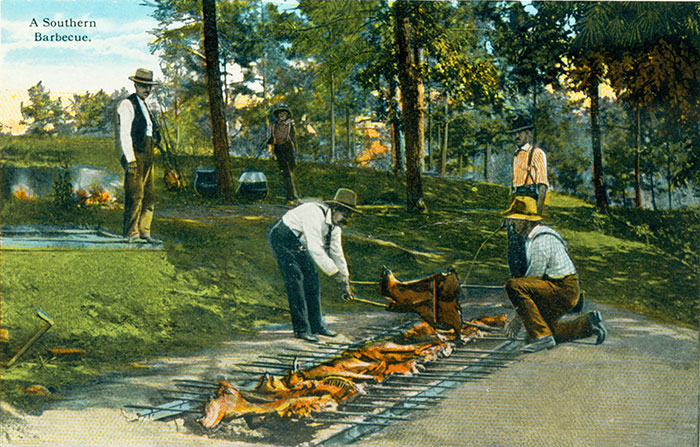

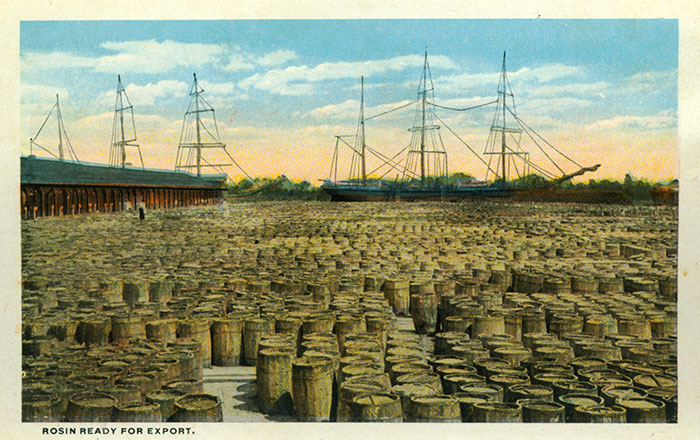
The Bunk House
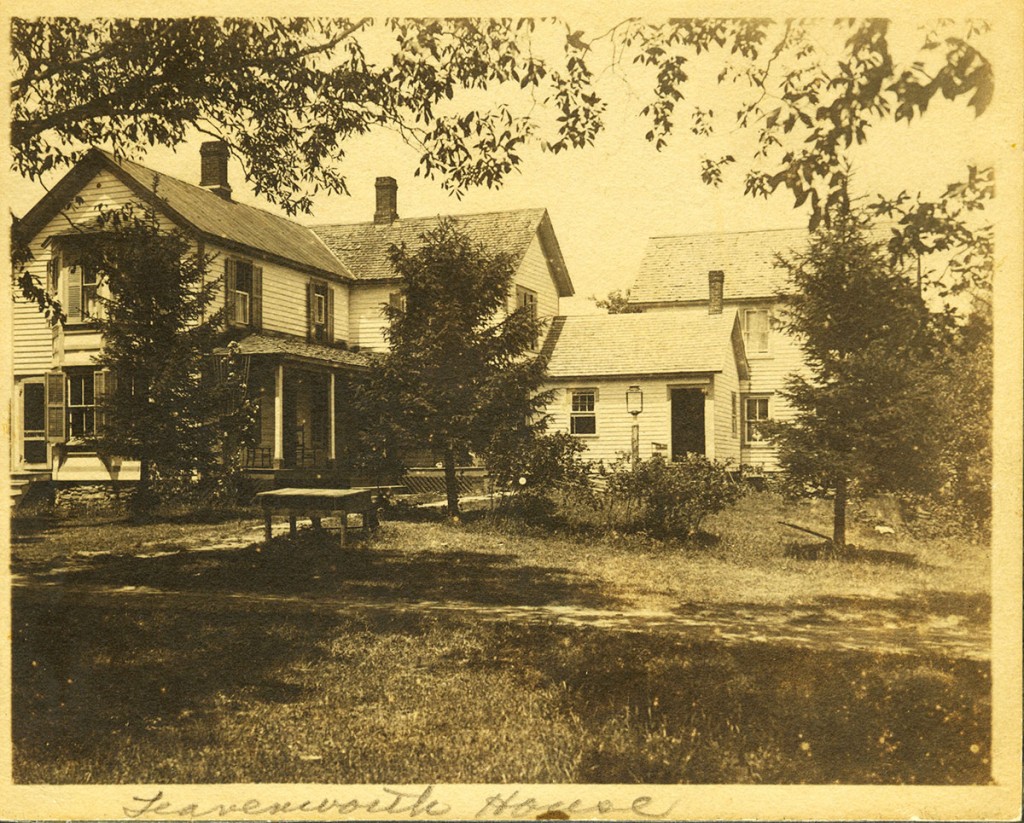
Photo courtesy of C. Myers.
The early bunkhouses for lumbermen were small with dirt floors. Their later living quarters were usually in a larger building.
The ground floor contained a room for the cook (who could be a woman, as in the case of my great-great-grandmother Charlotte Ingram Leavenworth), and a dining room.
Meals were served on long board tables, and the crew were only allowed in the room at meal time. A “men’s room” was at the end of the room where the crew could relax, read, grind their axes, or tell stories in the evening.
A ladder went to the attic where there were tiers of bunks for sleeping. A one story log building was used as a barn for the horses and a storehouse for hay and oats.
In the above photo of the Leavenworth home, the larger building on the right (which is no longer there) and the small one story building in front, seem to match the description of the loggers’ living quarters just mentioned.
When it was in use, the first floor of the larger building (on the right) was the family’s summer kitchen and the upstairs was the servant quarters.—Louise Austin Smith.
Source: Fox, William Freeman, A History of the Lumber Industry in the State of New York, published in the Sixth Annual Report of the New York Forest, Fish, and Game Commission, 1901. —The Mill on Halfway Brook, p. 42.
An 1896 photo of the Leavenworth home does not include the two story building on the right. When I wrote “The Mill on Halfway Brook,” I had thought that at least the small one-story building might have been the early bunkhouse, but I am not so sure of that now. There would need to be more research.—Louise, April 2015.
The Goose Lot and Stone Walls
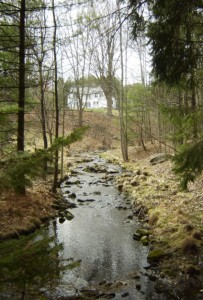
April 27, 1864
Dear Brother Sherman,
We are all well at present. We have got our new barn a going up at last.
We are doing the foundation now and we have put the last stones in that you pried up in the ten acres fallow, the last after mine that you worked here…I am back home again.
The last we heard from you, you were on Saybrook Island. They don’t draft any around here, but strong talk we would see greys heels up in the air.
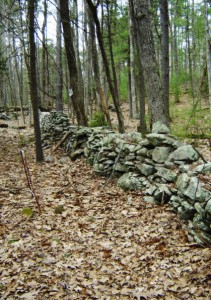
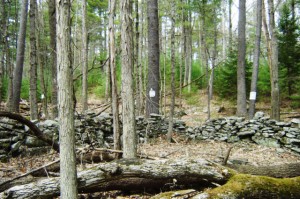
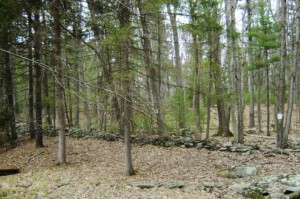
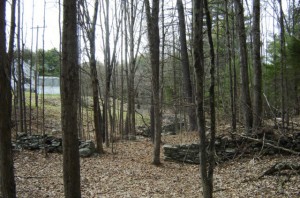
Me and father saws down to the mill…Mother wishes you back to Yorktown again as she could send you something.
Mother says you must write her a good long letter from Atwell.
Write soon,
John E. Leavenworth
Stonewalls
John Leavenworth mentioned the stone walls on their property in a letter to his brother Sherman. Here are some photos of the walls, and the goose lot taken by Cousin Cynthia in 2009.
The goose lot was a large area surrounded by stone walls with a space that was left for a gate. The geese had one wing clipped so they couldn’t fly over the stone walls.
The Leavenworths raised geese for their meat and eggs. Their feathers were used for stuffing pillows and comforters.
The walls were probably built in the Civil War era. Dad mentioned that Atwell was working on stone walls before he went to war and probably the goose lot was part of that too.—Cynthia.
One of the stories said that because the men were fighting in the war, it left the ladies at home to finish making the rock walls. The ladies carried the rocks in their aprons to the place they needed to be, or so the story goes. Some of those rocks were pretty heavy.
—Louise Austin Smith; The Mill on Halfway Brook, p. 99.
Sawmill on Blind Pond Brook
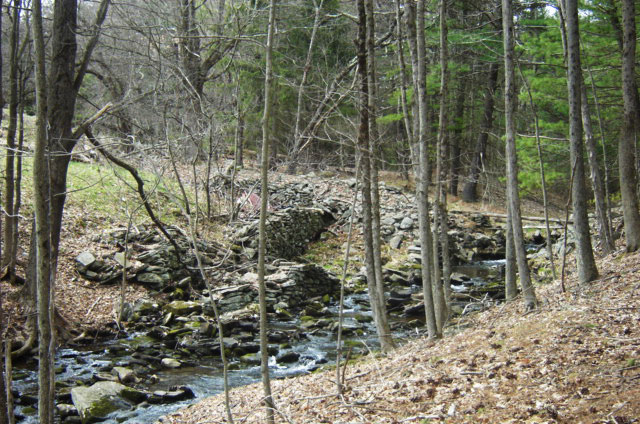
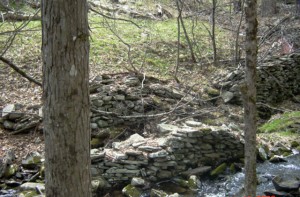
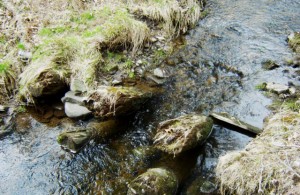
The first two photos show where the old Leavenworth sawmill used to stand on Blind Pond Brook. The two stone walls were built to channel the water to the mill.
A sluice was created utilizing the large vertical posts placed vertically in the brook. Horizontal boards would be raised or lowered against the posts. In this way the flow of water to the waterwheel could be regulated.—The Mill on Halfway Brook, p. 43.
A special thank you to my cousin Cynthia for the photos.
Early 19th Century Up and Down Sawmill
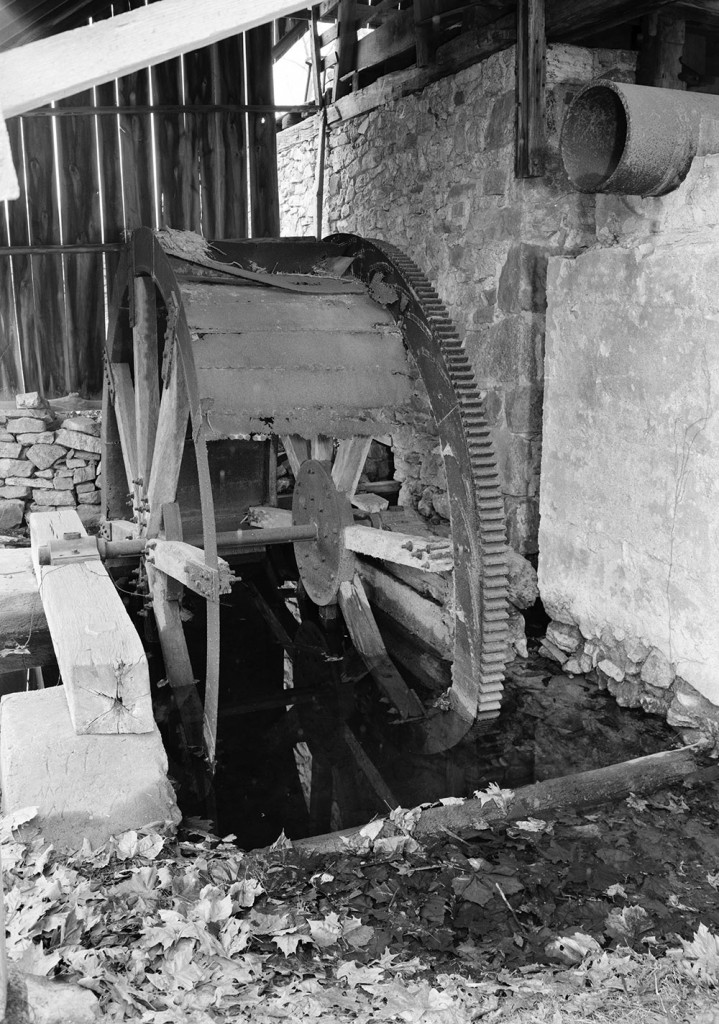
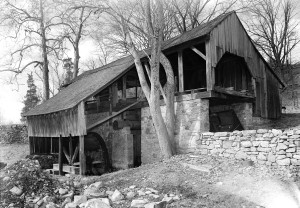
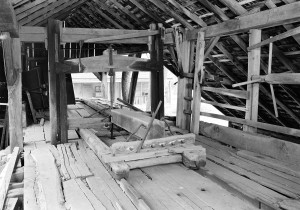
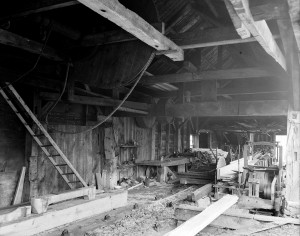
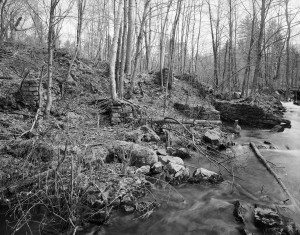
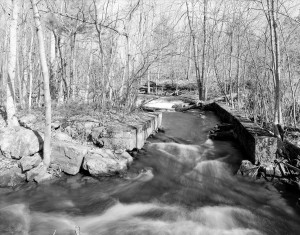
This unusual survivor of a water powered vertical saw with few changes was located in Chester County, Pennsylvania, and photographed in 1961.
It is typical of the sawmills that were in Lumberland.
It is a water-powered vertical saw with a single blade and wooden log carriage set in a heavy wooden frame.
The saw operated at 100–130 strokes per minute and the log advanced approximately two
feet per minute.
The saw was contained in a framed superstructure on a stone foundation built over a millrace.
A wooden undershot waterwheel was housed in a shed on the side. Water was supplied by an adjacent stone dam.
The sawmill was dismantled and moved to the National Museum of History
and Technology, Smithsonian Institution, Washington, D.C.—The Mill on Halfway Brook, p. 48.
Please click on the photos for a larger image.
Photos: Library of Congress, Prints & Photographs Division, HABS, Reproduction number HABS PA,15-CHESP.V,1-6.

